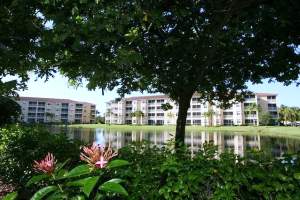|
Article Courtesy of The News-Press
By Dick Hogan
Published October 15, 2011
Osprey Cove, a condominium in Estero, was dealing with a wave of foreclosures that cut off maintenance fees from many of its units.
The community's property manager, Hayden & Associates, had to deal with "huge delinquencies" and traditional ways of dealing with them weren't promising, Ken Hayden said.
"You throw them in the collections meat grinder with an attorney and I just don't think the legal profession was prepared for it or adequately staffed for it," he said. "We set out to find an alternative way."
|
Hayden hired LM Funding, a Tampa-based company that helps distressed condo associations deal with their financial problems.
Another community, Tarpon Point Marina in Cape Coral, didn't have the financial issues that plagued Osprey Cove, but also needed help when a foreclosure lawsuit against the developer stalled a huge project in the Rose Garden area of the Cape.
The condo association at Tarpon Point brought in KW Property Management & Consulting, a Miami-based company with a Bonita Springs office, to deal with the situation.
Although Tarpon Point didn't have the maintenance fee delinquency issues less affluent projects are facing, it was spending far too much for the expenses of maintenance and repairs. |
|
Osprey
Cove and communities across Southwest Florida have had to contend
with delinquent maintenance fees due to foreclosures
|
Now both condominiums are thriving thanks to aggressive action to counter the effects of a sustained slide in the price of real estate: The median existing single-family home in Lee County sold for $322,300 in December 2005, but in August went for only $103,200, according to Florida Realtors statistics.
In the case of Tarpon Point, KW president Paul Kaplan said the first priority was to renegotiate all the vendor contracts to take advantage of today's lower costs.
"Vendors are forced to do it for less money," he said. "There's more competition, people are cutting costs."
Unlike most distressed communities, the project's lender, Dutch bank SNSPF Interim Finance B.V., helped fund the maintenance costs.
"This particular bank was very fair with the property," Kaplan said. "They were financially responsible. That was unique."
More often, consultants say, it's the bank and the people being foreclosed on that are the main problems.
Sean Galaris, president of LM Funding, said his company's answer is to purchase the association's bad debts, then hire a law firm to collect the money.
An amount equal to the principal of the debt goes to the association up front to provide fast relief and LM's profit comes from late fees and interest on the debt, Galaris said.
The strategy takes advantage of LM's expertise and ability to get legal services at a lower rate than the association could, said Aaron Gordon, the company's in-house legal counsel.
"We're paying for a fight we're pretty confident we'll win, but which an association might not," he said.
Kaplan said his company's strategy in high-foreclosure communities is to take advantage of the banks' "dragging their feet" in foreclosures to avoid having the responsibility of taking possession of a unit and being forced to pay the maintenance fees.
Instead, he said, KW urges associations to file for foreclosure themselves, take the property back before the bank can get it, and then rent it out to get the delinquent maintenance fees.
"It's costly, but most of the time you're going to get title before the bank because the banks are so slow," Kaplan said.
|
